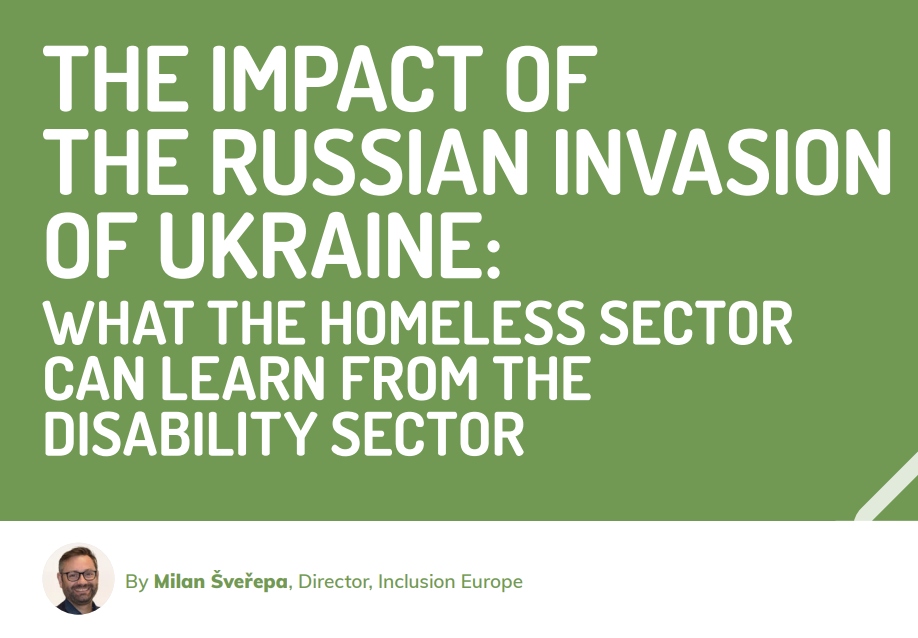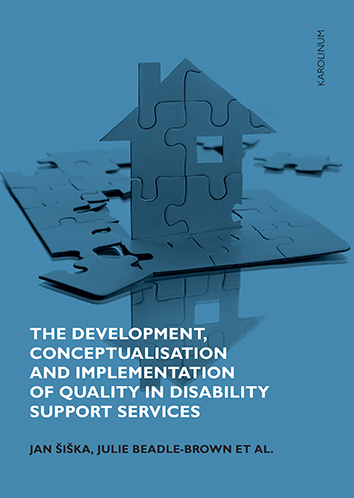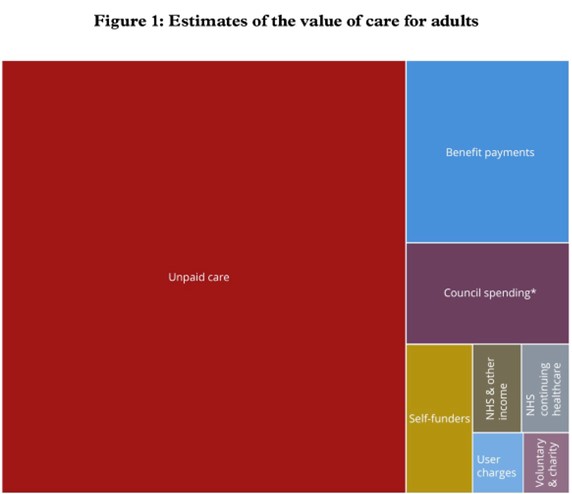-
2022. Enough said
As I write my usual end-of-year summary, there is only one topic that can be in focus: The incredibly courageous response of the Ukrainian people with disabilities and their families facing genocidal Russian war. And alongside it, the solidarity and support provided by all of you in the European and international Inclusion community. What Inclusion…
-
If you are being overlooked in normal times, it is unlikely that anyone will take you into account during a crisis

I was kindly invited by FEANTSA to contribute to their magazine about the impact of the Russian war on Ukraine. This is what I wrote: The situation of people with disabilities in Ukraine There are over 2.7 million people with disabilities in Ukraine, of which some 260,000 are people with intellectual disabilities. They often experience severe…
-
Protecting people with intellectual disabilities and their families during russian war on Ukraine
Key parts of Inclusion Europe work to support people with intellectual disabilities and families in Ukraine: Fundraising and financial support There are 14,000 families brought together by our member in Ukraine alone. Many of them without jobs, pensions because of the war. Inclusion Europe launched an emergency fundraiser to help them. By mid-April, we raised…
-
End-of-year reading and listening recommendations
As many do at the end of a year, I also shared some reading and listening recommendations from 2021. 🕵️♀️ This series of Investigate Europe articles on private money in old people care is definitely worth the time of anyone interested in social services. 🔥 Inclusion Dialogue podcast is always very interesting to get new…


